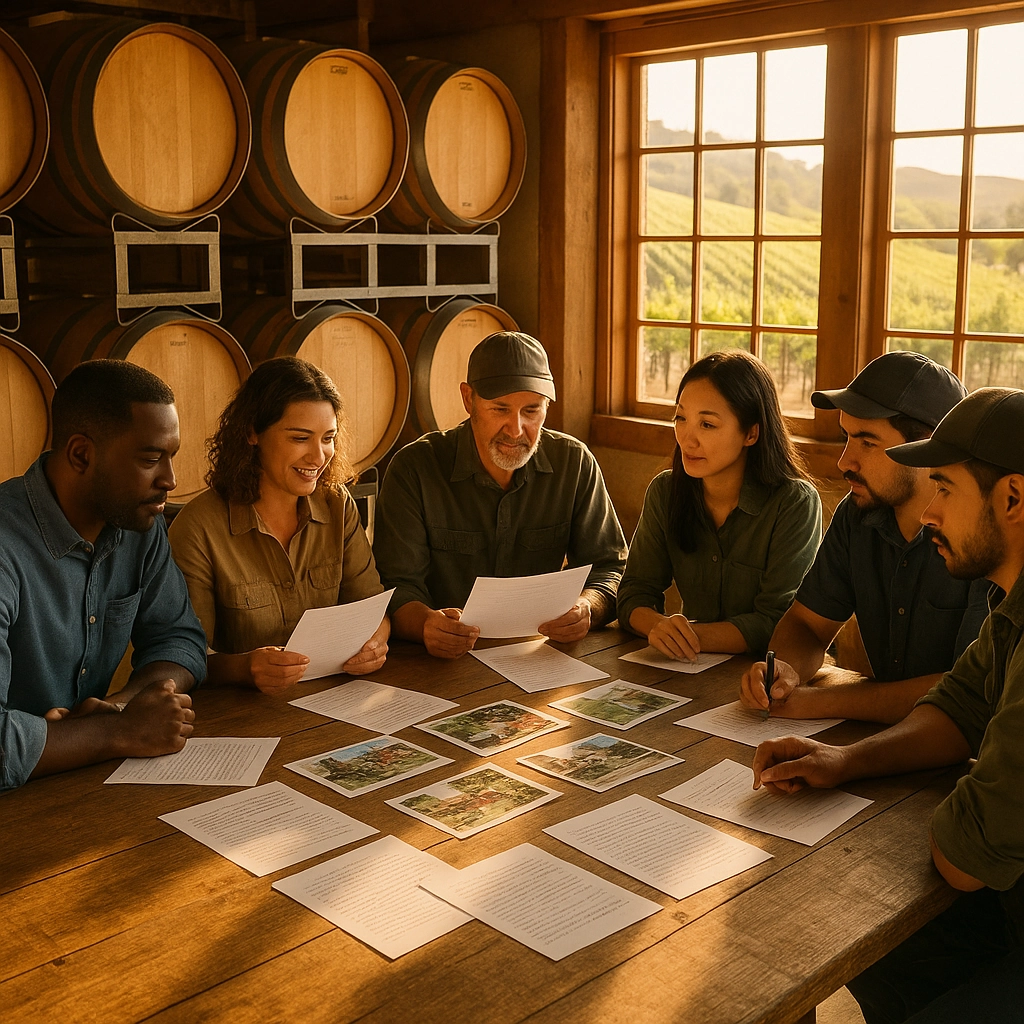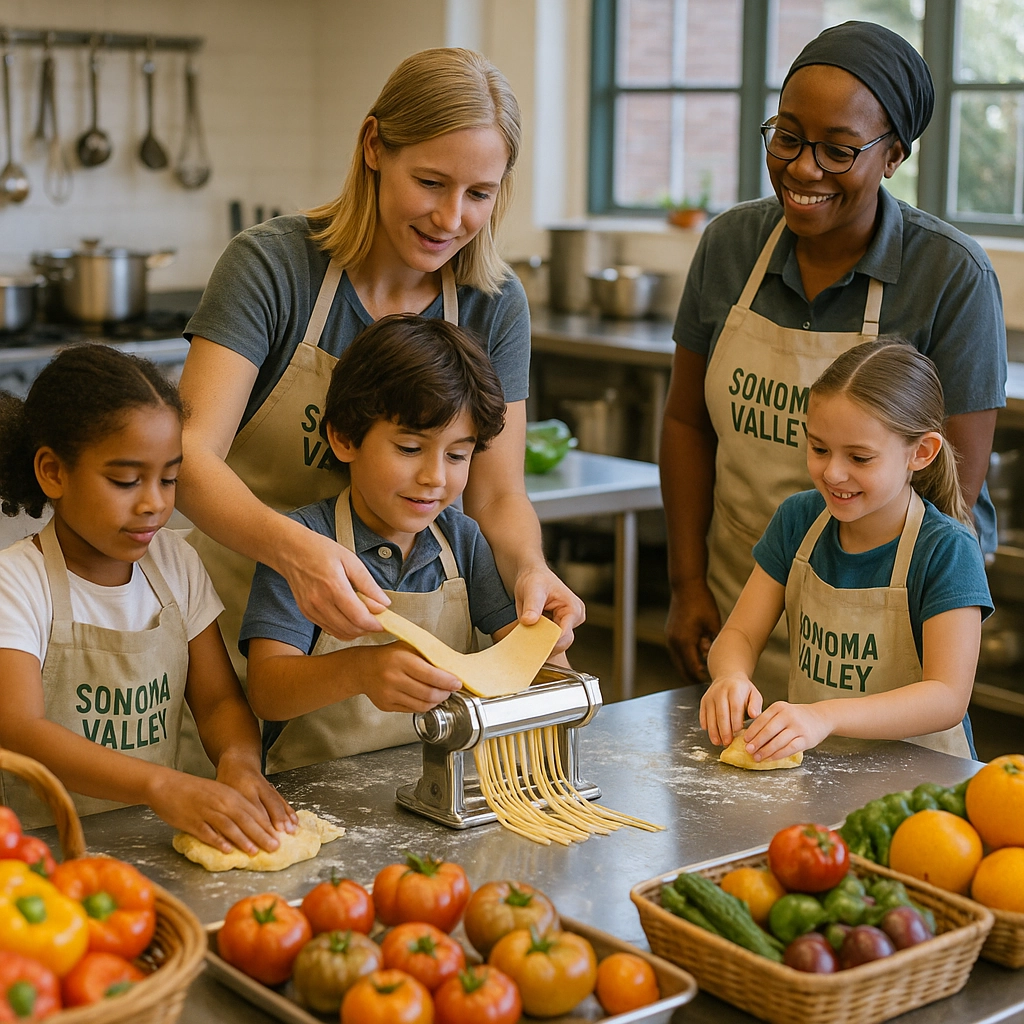In a powerful demonstration of corporate social responsibility, Landmark Vineyards has announced the distribution of $75,000 in grants to local nonprofits and schools through its 2025 Community Grants Program. This latest round of funding continues the winery's decade-long commitment to strengthening Sonoma County communities, with particular focus on youth education, environmental stewardship, workforce development, and community wellness initiatives.
Since its inception in 2014, Landmark's Community Grants program has provided an impressive $800,000 in funding to organizations making tangible differences in Sonoma County. The program exemplifies how food and beverage companies can create meaningful impact beyond their products, establishing deep roots in their local communities.
Strategic Community Investment in Sonoma's Future
"This year's community investments reflect our unwavering commitment to supporting the needs of Sonoma County, empowering local nonprofits and schools to create meaningful, lasting change," said Molly Scott, senior director of grower and community relations at Landmark Vineyards. "We believe in collaborating with organizations that are making a tangible impact, whether by expanding educational opportunities, fostering environmental stewardship, or strengthening local communities. Together, we are building a brighter, more sustainable future for Sonoma County."
What sets Landmark's approach apart is their employee-driven selection process. Rather than relying solely on executive decisions, an employee committee carefully evaluates potential recipients based on community impact and alignment with local needs. This grassroots methodology ensures funding reaches organizations with demonstrated effectiveness and community support.

2025 Grant Recipients: Driving Positive Change Across Sonoma County
The 2025 recipients showcase the diverse ways Landmark's funding touches lives across Sonoma County:
Workforce Development and Career Advancement
Sonoma County Fundación de la Voz de los Viñedos received funding to support their Leadership Academy, a program overseen by the Sonoma County Winegrowers. This initiative helps local vineyard workers develop essential career skills, advance into leadership roles, and build professional networks—creating pathways to advancement within the wine industry.
"We are honored to receive this generous support from Landmark Vineyards, which enables us to continue investing in the future of our vineyard workforce through the Leadership Academy," said Karissa Kruse, executive director of Sonoma County Fundación de la Voz de los Viñedos. "This program is not only about professional development — it's about unlocking potential, creating opportunity, and recognizing the vital role our vineyard employees play in the success of Sonoma County. Together, we are building a legacy of leadership that will elevate individuals, families, and our entire agricultural community."
This type of support mirrors wider industry trends toward professional development in the food and beverage sector, creating more sustainable career paths and addressing labor challenges.
Youth Education and Enrichment
Sonoma Valley Mentoring Alliance will continue their after-school art and culinary classes for Title 1 students, building on previous funding to enrich opportunities for 300 mentor/mentee pairs. These programs provide essential creative outlets and practical skills development for students who might otherwise lack access to such opportunities.
Robert Ferguson Observatory received support for their Young Astronomers club, providing Sonoma County students with opportunities to explore astronomy through stargazing and scientific discussions. This grant helps inspire STEM interest among local youth, potentially leading to future careers in science and technology.

Environmental Stewardship and Sustainability
Russian Riverkeeper will use their grant to support the restoration of native plant species while working to remove the invasive Arundo plant from the Russian River. This invasive species not only hosts destructive pests but also presents a significant wildfire risk due to its high flammability. The project demonstrates how green practices can strengthen supply chain efficiency while protecting natural resources.
Community Wellness and Financial Empowerment
Corazón Healdsburg received funding to enhance case management and financial literacy programs for low-income youth and families. These services provide essential support for lasting community transformation, addressing root causes of economic insecurity rather than just symptoms.
Classroom Grants: Investing Directly in Education
Beyond the nonprofit grants, Landmark is providing $15,000 in Classroom Grants to support local educators through DonorsChoose. This funding helps teachers enrich their classrooms with new supplies and books, addressing the well-documented challenge of educators spending personal funds on classroom materials.
The classroom grant component represents a direct investment in education infrastructure, providing resources that benefit students across Sonoma County. By partnering with DonorsChoose, Landmark ensures these funds reach classrooms with demonstrated needs, maximizing educational impact.
The Business Case for Community Investment
For food and beverage companies considering similar initiatives, Landmark's program offers valuable insights. Community investment programs deliver multiple business benefits beyond charitable giving:
- Strengthened community relationships – Building goodwill with local stakeholders creates a supportive business environment
- Enhanced recruitment and retention – Employees increasingly value working for socially responsible companies
- Brand differentiation – Authentic community engagement resonates with today's conscious consumers
- Supply chain resilience – Supporting local infrastructure and workforce development strengthens the entire ecosystem
As purpose-driven business principles gain traction across the industry, programs like Landmark's demonstrate how strategic community investment aligns corporate values with tangible social impact.
Measuring Impact and Ensuring Accountability
Landmark's approach doesn't end with distributing funds. The winery will collaborate closely with nonprofit partners throughout the year, tracking progress and sharing updates with the community. This accountability ensures grants achieve their intended outcomes while providing transparency to stakeholders.
"Our Community Grants Program isn't just about writing checks—it's about building partnerships that drive real change," said Molly Scott. "By tracking outcomes and staying engaged with our nonprofit partners, we can adapt our approach to maximize impact and address evolving community needs."
For food and beverage industry leaders considering similar initiatives, this measurement framework provides a valuable model for demonstrating return on community investment.
The Evolution of Corporate Social Responsibility in Wine Country
Landmark's program reflects broader trends in the wine industry, where corporate social responsibility has evolved from occasional donations to strategic community partnerships. As climate change, workforce challenges, and economic pressures impact wine regions, forward-thinking wineries are investing in resilience-building programs that strengthen their communities.
The wine industry faces unique challenges and opportunities for community engagement. Agricultural practices directly impact environmental health, while tourism brings both economic benefits and infrastructure demands. Programs like Landmark's address these complexities through targeted investments in environmental stewardship, workforce development, and community infrastructure.
Looking Forward: The Future of Community Investment
Landmark's dedication to advancing education, environmental sustainability, and local workforce development remains a cornerstone of its corporate social responsibility initiatives. As the program continues to evolve, it may further refine its focus areas to address emerging community needs while maintaining its commitment to Sonoma County.
For food and beverage companies considering similar initiatives, Landmark's decade-long commitment demonstrates the value of sustained investment. Rather than one-off donations, developing long-term community partnerships creates deeper impact and stronger stakeholder relationships.
Conclusion: A Model for Industry Engagement
Landmark Vineyards' Community Grants Program offers a compelling model for food and beverage industry community engagement. By combining employee involvement, strategic focus areas, and outcome measurement, the program maximizes impact while aligning with business values.
As consumers increasingly expect companies to contribute positively to society, programs like Landmark's represent more than philanthropy—they're essential components of sustainable business practice. By investing in community resilience, companies strengthen the ecosystems that support their operations while building goodwill with stakeholders.
For more information about Landmark Vineyards' Community Grants Program and upcoming updates, visit www.landmarkwinegrants.com. To explore Landmark's wines and tasting experiences, visit www.landmarkwine.com.
Have you seen similar community grant programs from food and beverage companies in your area? Share your experiences in the comments below, and let us know which initiatives you find most impactful.
Written by Michael Politz, Author of Guide to Restaurant Success: The Proven Process for Starting Any Restaurant Business From Scratch to Success (ISBN: 978-1-119-66896-1), Founder of Food & Beverage Magazine, the leading online magazine and resource in the industry. Designer of the Bluetooth logo and recognized in Entrepreneur Magazine's "Top 40 Under 40" for founding American Wholesale Floral. Politz is also the founder of the Proof Awards and the CPG Awards and a partner in numerous consumer brands across the food and beverage sector.






